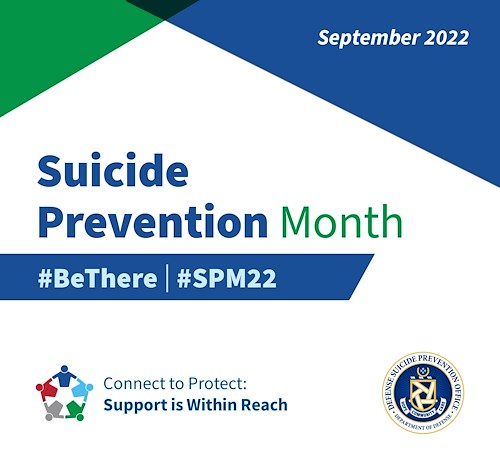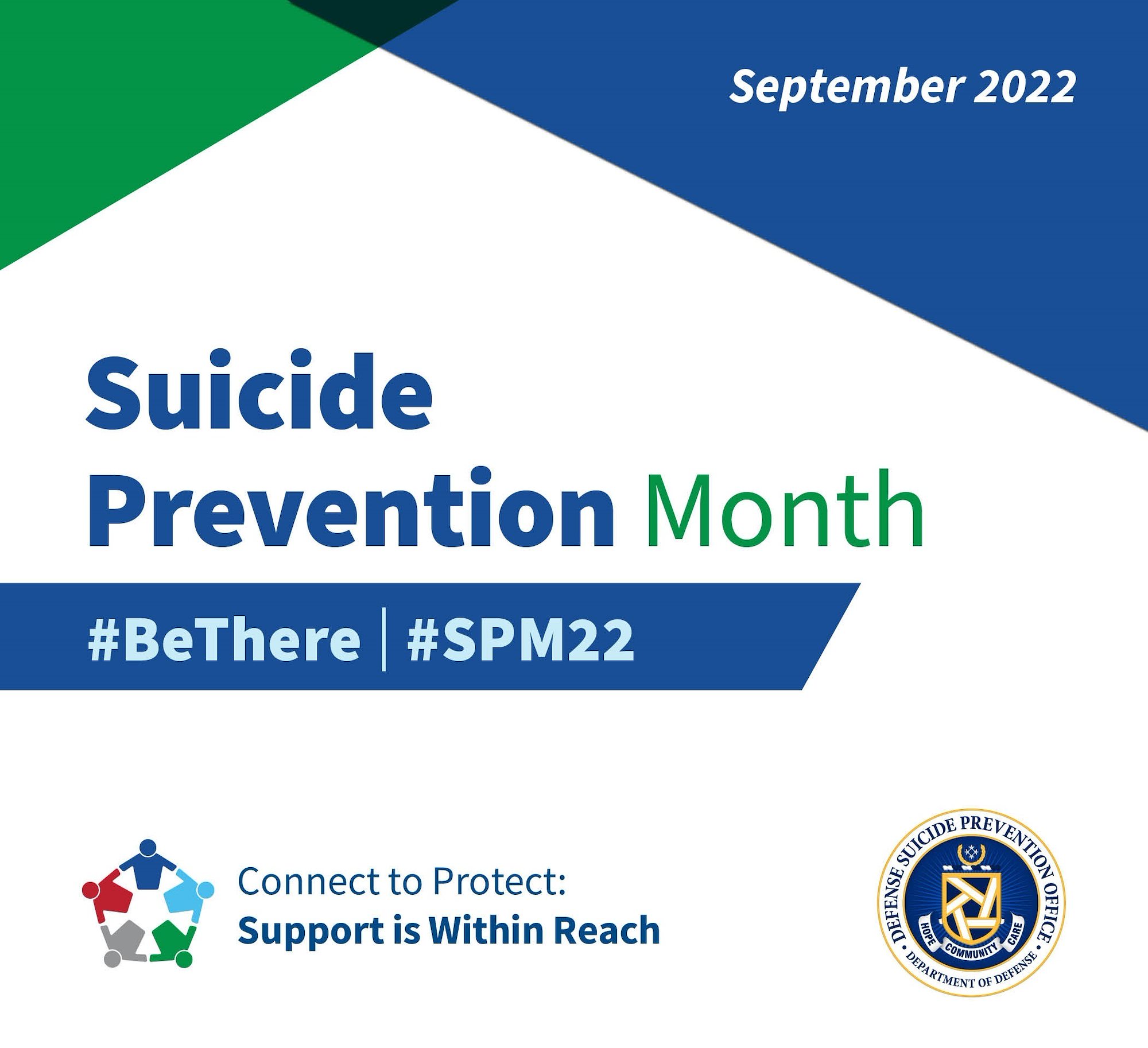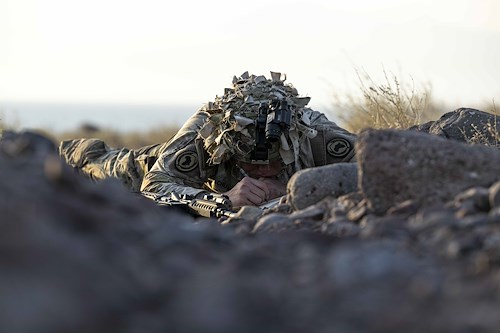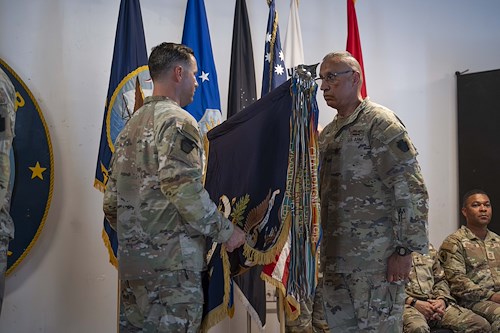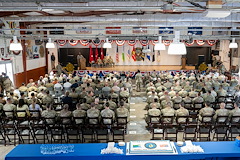Gallery contains 1 image
×
Photo 1 of 1
Combined Joint Task Force - Horn
2022 Suicide Prevention Month graphic
Photo by: Sgt. 1st Class Michael Davis
Although it is near the end of September, Suicide Prevention Month, it is important to keep awareness strong about suicide and to be there for fellow service members, family and friends throughout the year.
The following transcription is an interview with Combined Joint Task Force – Horn of Africa (CJTF-HOA) public affairs directorate and a Soldier who survived a suicide attempt and who is now supporting the CJTF-HOA mission.
1. Tell me about when you had thoughts of suicide. Where were you at in your military career?
I was very early in my career. The negative thoughts started about fall 2018; I had just arrived to South Korea for my first duty assignment after one year in a training and doctrine command. My rank was a specialist, but I came into the Army as one, so I was not knowledgeable about the Army in general, still very young. The negative thoughts turned into ones of self-harm and suicidal ideations around late 2018 or early 2019.
2. What were your actual thoughts?
It’s hard to put into words (more-so, finding the words) but at my worst times, I recall feeling nothing. And what I mean by that is things that usually gave me “joy” or at least things I enjoyed doing -- such as playing video games, reading and going to church -- did nothing for me. I stopped doing a lot of those activities. I would go to work and I could distinctly feel and recognize I was putting on a façade to my coworkers (being happy and productive), only to come home and just feel so alone and dark and like the walls were closing in on me. That eventually evolved into thoughts like “what’s the point,” “no one loves me,” “what’s the point of me being around,” “no one would actually miss me.” And I did a lot to convince myself that everything I was feeling and going through was also insignificant compared to others, which really prevented me from wanting to seek help at first.
3. What was your lowest point?
In the summer of 2020, there was a night during a low-point for me. I remember it being after work, around 6 p.m. My wife was out at work, so I was home alone (and being alone was the worst times for me). I cannot remember what led up to it. It was usually a lot of little things or thoughts that just added up together. But eventually, it led to me deciding to take about six pills of medication I was prescribed (the actual dosage is just one a day) as well as downing it with vodka. The medication had a side effect of elevated heart rate, with worst-case scenario being irregular heartbeats and complications. I did not do this with the intentions of trying to take my life, but I 100% remember thinking, “Well if I don’t wake up, that would be okay.” I went to bed early, well before my wife came home not really knowing what would happen.
4. Were you hesitant to seek help? If so, why?
I was super hesitant to at first. I believed all of the misconceptions about seeking help: my clearance would be at risk, my career would be limited, people would view me as weak. I had really convinced myself that my issues and problems were so insignificant that I thought, “Why should anyone be getting worked up over these things,” and “other people have it way worse.” I did a lot of comparison and diminishing of myself.
5. How did you get the courage/hope to ask for help? And how did you go about doing it?
Prior to the summer of 2020, I was committing self-harm (cutting and branding) for a few months. It was a really low and dark time for me. Then I received notification from my company command team that I was going to Basic Leader Course (BLC). I instantly recognized an issue here. I have always been taped in my Army career and always pass, but I am just a shorter, stockier dude. However, being taped results in having to take off your shirt, and I realized that with the timeline I was given, my scars would be so fresh and visible that it was going to be very noticeable. So after a few days of trying to build up the courage, I ended up going to a close battle buddy on a Sunday night and told her everything I had been going through up until that point. She listened to me for about two and a half or three hours. By the end of it, she had convinced me that my thoughts were all lies and that getting help was the best thing I could do for myself. So the next morning, I ended up talking to my platoon sergeant with my battle buddy, and that same day, ended up talking with my company commander, first sergeant, and behavioral health as well. My command team was super supportive and non-judging, which was really helpful for me. My commander even shared some of his own struggles. They did not command-refer me to behavioral health but encouraged me to consider it and I ended up going willingly, which again, I appreciated they let me decide.
Fast forward treatment and highs/lows to the summer of 2020, I went about a week after the overdose incident before I decided to talk to my company chaplain whom I had grown close to and opened up to him about what I had tried to do the week prior. He spent the night with me at the emergency room. He tried to be as least intrusive and non-judging and that was appreciated.
6. Did anyone notice anything different about you when you were having thoughts of suicide?
No one did. During my lowest points of depression and suicidal ideations, I was receiving awards, coins and recognition left and right. I was briefing VIPs up to three-star generals. I was the subject matter expert of my shop in Korea. I was the first sergeant for my graduating BLC class and awarded the distinguished leader award. I say all this to not flex, but I was a “model Soldier.” Funny-enough, I was the person that people came to talk about their own problems and issues. I was told I was such a great listener and supporter. I could give people a great ear and shoulder, but I could not do that for myself.
7. How did you recover from being suicidal? Or what were some of the steps you took?
I went to lots of therapy and just talked with people like my wife and chaplain. That was my biggest downfall and issue, just keeping things bottled up inside to the point of it exploding. I wasn’t always consistent, but most importantly, my wife recognized that and was super supportive in allowing me the time and space I needed to be able to come to her, and with time, I got a lot more comfortable and open with her and others quicker and sooner. A lot that my therapist talked to me about seemed like such common sense in hind-sight, but it also led to the development and enforcement of much better thought patterns and behaviors. What it seemed that I personally needed, looking back, was an ear to talk to, to know that people supported me, and help to re-structure my life in a way that kept me balanced and focused. Early on, it felt like I had to force it, and even my therapist would say that from time-to-time. It wasn’t always easy. I “fell off the path” a few times, but now that I had opened up to a support group, I had people who loved me and were supporting me and encouraging me to keep at it.
8. What would you say to that service member who is thinking about suicide now?
First and foremost, whatever you are feeling and going through is valid. Don’t compare your issues to others or try and downplay what you’re feeling. No matter what it might be that’s going on in your life right now, even if it doesn’t seem this way, there is someone who loves you and wants you to get better (even me, a total stranger). Don’t buy into the misconceptions about depression and suicidal ideations, such as they are a sign of weakness or you will ruin your career. None of that is true. It may be cheesy to say, but seeking help is an immense sign of strength, because you had the intestinal fortitude to say, “I recognize I need help and want to get better.” I just want to encourage you to take those baby steps to get there, whatever that may look like to you. And it won’t be an overnight victory; there’ll be bumps in the road. Just think about and remind yourself of all the things you thought you couldn’t do, actually accomplished, and now you’re here. You can and will overcome this as well.
Editor’s Note:
Suicide is a serious concern in the military community. If you are in crisis, or you know someone who is, there are immediate resources available to support you or your loved ones.
Learn more by visiting Military OneSource at https://go.usa.gov/xhcNT.

